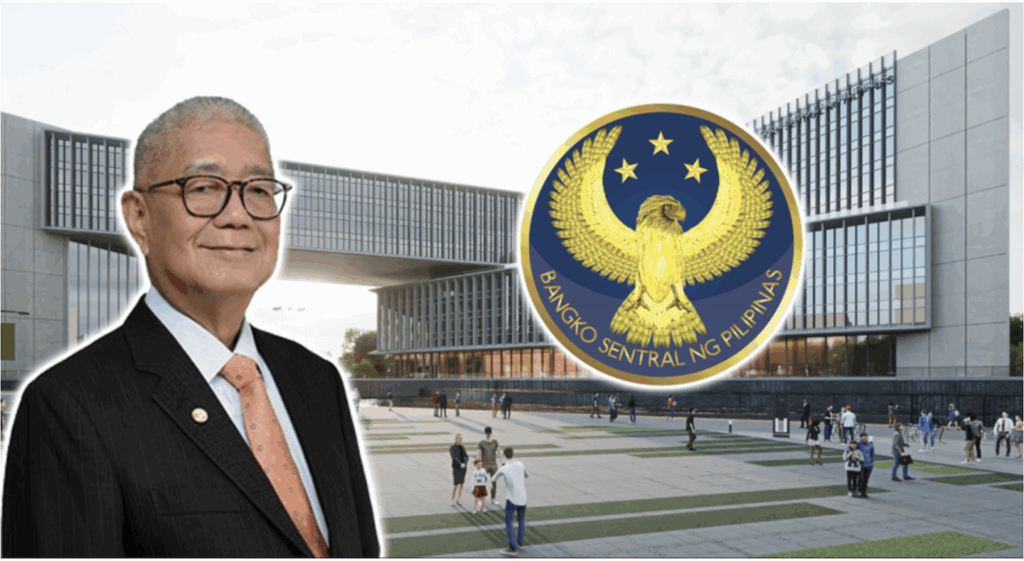A collective sigh of relief and a surge of optimism swept through the Philippine financial landscape following the nation’s official exit from the Financial Action Task Force’s (FATF) grey list this past February.
The delisting, a culmination of concerted reforms and unwavering commitment from various government agencies, is poised to unlock a cascade of benefits for ordinary Filipinos, bolster local businesses, and pave the way for a significant influx of foreign investment.

Photo shows BSP Governor and Anti-Money Laundering Council Chairman Eli M. Remolona, Jr. (right) receiving the plaque of recognition for the Philippines’ exit from the Financial Action Task Force grey list from President Ferdinand “Bongbong” R. Marcos, Jr. (center) and Executive Secretary and National Anti-Money Laundering/Counter-Proliferation Financing/Counter-Terrorism Financing Coordination Council Chairman Lucas P. Bersamin (left).
Malacañang ceremony highlights benefits of FATF grey list removal
The significance of this milestone was underscored recently at a formal ceremony held in Malacañang Palace led by President Ferdinand R. Marcos Jr., who lauded the tireless efforts of key contributors in achieving this crucial feat.
Bangko Sentral ng Pilipinas (BSP) Governor and Anti-Money Laundering Council (AMLC) Chairman Eli M. Remolona, Jr., echoed this sentiment, stating, “Through concerted reforms, government agencies fortified the integrity of our financial system and reaffirmed our nation’s commitment to combating financial crimes.”

For the millions of overseas Filipino workers (OFWs) who diligently send remittances home, the grey list exit translates to tangible improvements in their financial transactions.
President Marcos Jr. emphasized this direct impact, noting, “For us Filipinos, exiting the grey list means a simpler, more affordable financial system of transaction. It means our OFWs can send money home at a lower cost.” The often-onerous compliance procedures and higher transaction fees associated with being on the grey list are expected to ease, allowing more of their hard-earned money to reach their families.
Beyond individual benefits, the delisting is anticipated to inject renewed vigor into the Philippine business sector. The grey list designation often presented hurdles for local enterprises seeking international financing, creating complexities and delays in cross-border transactions.
Delisting to ease access to international capital markets

With the Philippines now demonstrating a robust framework against financial crimes, these impediments are expected to diminish significantly. “It also means that our businesses face fewer hurdles in securing international financing, which encourages foreign investors,” the president further affirmed.
This newfound ease in accessing global capital markets can fuel expansion, innovation, and job creation within the country.
Executive Secretary Lucas P. Bersamin, Chairman of the National Anti-Money Laundering/Counter-Terrorism/Counter-Proliferation Financing Coordinating Committee (NACC), highlighted the comprehensive nature of the reforms undertaken.
“Together we have erected a comprehensive framework to address money laundering, terrorism financing, and proliferation financing,” he stated, acknowledging the collaborative spirit that transcended both the public and private sectors. This unified approach was crucial in satisfying the FATF’s stringent requirements and demonstrating the Philippines’ unwavering commitment to financial integrity.
The National Anti-Money Laundering/Counter-Financing of Terrorism Coordinating Committee (NACC) is a body created by Executive Order No. 68 in 2018 to oversee the implementation of the National Anti-Money Laundering and Counter-Financing of Terrorism Strategy (NACS).
It is composed of various government agencies, including the Bangko Sentral ng Pilipinas, the Insurance Commission, the Securities and Exchange Commission, the Department of Finance, and the Department of National Defense, among others, with the AMLC serving as its Secretariat.
The NACC’s primary goal is to ensure coordinated action among different government and private sector entities towards the common objective of fighting money laundering and terrorism financing by methodically bringing them together under the framework of the NACS.
More international banks expected, boosting financial services

The implications of the grey list exit extend to the broader financial ecosystem. The enhanced transparency and reduced compliance burdens are expected to encourage more international banks to establish or resume business relationships with the Philippines. This increased competition within the financial services sector can lead to more favorable terms, innovative products, and better services for both individuals and businesses.
The journey to this significant achievement began in 2021 when the Philippines was placed on the FATF’s grey list due to identified gaps in its anti-money laundering, counter-terrorism financing, and proliferation financing frameworks.
The subsequent years saw an intensive and coordinated effort by various government agencies, spearheaded by the AMLC and the NACC, to address the FATF’s recommended action items. This involved legislative reforms, enhanced monitoring mechanisms, and stricter enforcement protocols.
The successful fulfillment of these requirements culminated in the FATF’s decision to remove the Philippines from the list in February 2025, a testament to the nation’s dedication and perseverance. This exit not only signifies a strengthening of the Philippine financial system but also enhances the country’s reputation as a reliable and trustworthy partner in the global economic arena.
As the Philippines steps out from under the shadow of the grey list, a new era of economic opportunity and enhanced financial stability dawns.
The benefits are far-reaching, promising a more seamless financial experience for its citizens, a more conducive environment for its businesses, and a more attractive destination for foreign investment, ultimately contributing to the nation’s continued growth and prosperity.
The collaborative spirit and unwavering commitment that led to this success will undoubtedly serve as a strong foundation for navigating future economic challenges and opportunities.








